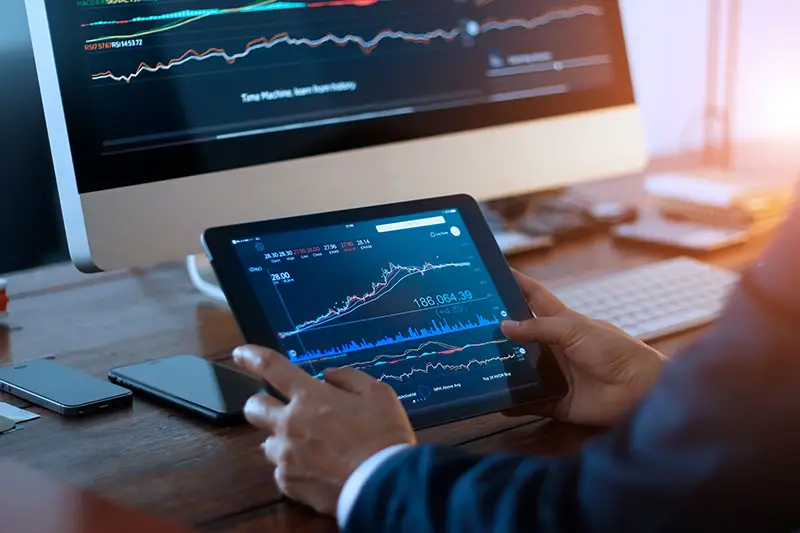Click here to get this post in PDF
Once people started working from home during the COVID-19 pandemic, they realized that there were many other ways to make money. And one of the trends at the time was forex trading. Forex traders were hardly affected by the working-from-home regulations. After all, most of them had been content with sitting at home and still making money. If anything, the pandemic only helped them double down on their trading as they realized they had always had the upper hand. Another thing that traders love is the promotions, such as the deposit bonus, that most brokers offer. This only prompted more people to start trading. However, most had no idea where to start, where to find the best forex trading platforms they could use, how to avoid getting scammed, etc. You can visit this website if you need more in-depth information. However, this guide will take you through the most crucial choice – choosing the broker.
How Should You Choose a Forex Broker?
Have you ever placed a bet? If you have ever wagered, you know that the bookie you choose determines everything – from how much you can wager to the odds you get down to how you can access your money. Choosing a broker is quite like this. If you choose a good one, you enjoy good terms and can make the most of your capital. But if you choose a broker not aligned with your needs, your trading journey will not be as smooth. Below are the points you cannot afford to ignore:
1. Is the Broker Licensed?
How can you trust that a broker will do right by you? What measures are in place to protect you and the broker? These questions are easy to answer once you investigate if a broker has a license – this is documentation that certifies that the platform has met all the legal requirements to run such a business. That allows the company to receive deposits, handle them on your behalf, and pay you as needed.
Is a license that important? Yes! All licensed platforms have no option but to abide by the rules. Besides, the licensing bodies often review the performance of the platforms regarding their fiscal policies. Thus, if any misappropriation comes to light, the licensor can step in and protect your rights.
Moreover, licensing bodies also investigate claims by traders regarding the integrity of the platform. If the claims turn out to be true, the licensor can cancel the license. As such, brokers toe the line to avoid losing their licenses.
Where can you get information about the license? Platforms indicate the details of their licenses on their web pages, but that’s not the only place you should look. First, contact the licensing body and ensure that the platform has a valid license. Else, you will not have ascertained that your deposits are safe.
Even if a platform checks all the other boxes in this list, licensing is the most critical factor.
2. What Leverage Does the Broker Provide?
Your trading ability and profitability depend on the leverage that a broker is willing to provide in your margin account. But what is leverage? It is a ratio that determines the position you can hold in relation to your account size. Let’s use two examples.
Suppose a broker has a leverage of 100: 1 while another has a ratio of 50:1. In the first case, someone with $2,000 in their account can hold a position worth $200,000 (100*$2,000). And in the second instance, the trader can hold a position valued at $100,000 (50*$2,000). Thus, the more leverage a broker offers, the more profits you can make.
However, you should also consider that the higher the leverage, the higher the risk of losses. Thus, when choosing a broker, pay attention to how much leverage you can get and proceed with caution.
3. What are the Commissions and Spreads?
Before signing up on any platform, you need to know how the company makes money. Some eke a profit from charging commissions on the spread. The spread is the difference between the bid and ask of a forex pair. In this case, the site would let you know how much it charges on the spread percentage. Sometimes, the broker charges a rate on a fixed spread. And in other cases, the broker charges based on how volatile the market is – which means you are never quite sure how much you need to pay for each pair. Please note that when dealing with wide spreads, the profitability of your trade also reduces. Thus, you may want to focus on popular pairs like the GBP and the USD. While the spreads here are low, the profitability is high. And that makes it easier to turn a profit.
Understand how you will pay to use the platform and whether this augurs with your trading preferences.
Always remember that you have the advantage. In an industry with tens of brokers, it is a buyers’ market, and you do not need to settle for anything short of what you want. It’s best to take your time and analyze what you want versus what a broker will give you. Then you can make a much better decision. All the best!
You may also like: 4 Reasons You Need Insurance Brokers And How To Find One
Disclaimer
The information contained above is provided for information purposes only. The contents of this article are not intended to amount to advice and you should not rely on any of the contents of this article. Professional advice should be obtained before taking or refraining from taking any action as a result of the contents of this article. Sandra Hinshelwood disclaims all liability and responsibility arising from any reliance placed on any of the contents of this article.
Image source: Shutterstock.com

